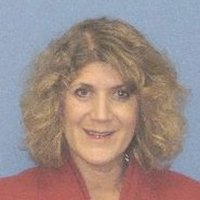EHPS National Delegate
Support the EHPS to deliver its aim of helping individuals, families, and societies to better cope with life challenges related to illness and health, by promoting rigorous science, health promotion interventions, and close collaborations.
- #back to all
United States

Tracey A. Revenson

Caroline F. Z. Stuhlmann
Health psychology in the U.S. involves the the contributions of biological, psychological, social, cultural, and behavioral factors to physical health and well-being. This also characterizes the broader field of behavioral medicine, which coincidently appeared at the same time as health psychology in the late 1970s. Clinical health psychology is an even narrower sub-discipline, where students receive training and internships to treat patients in a medical setting as well as conduct research.
U.S. health psychologists who do not have clinical expertise are a broad group with diverse training. For example, there are health psychologists with expertise in statistics, psychophysiological methods, brain imaging, neuroendocrine and immunological assessment, social relationships, developmental processes, or population health. Many health psychologists “work the hyphen” within psychology and call themselves social-health psychologists, developmental-health psychologists, or health neuroscientists.
Health psychology research covers all points on the health-illness spectrum, from in primary prevention (i.e., strategies to promote wellness or to lower chances of developing illness), secondary prevention (e.g., lipid screening, early detection of disease), and treatment/intervention (i.e., strategies to promote wellness in the context of a medical illness or to lower the chances of worsening illness). Health psychology also involves the translation of research into education and policy to improve the health of individuals and communities.
Adapted from Revenson, T.A., Saab, P.G., Zoccola, P. M., & Traeger, L. (2020). Becoming a Health Psychologist. New York: Routledge/Taylor & Francis. https://doi.org/10.4324/9781351201278
Society for Health Psychology (SfHP)
[also known as Division 38 of the American Psychological Association]
https://societyforhealthpsychology.org
Publications:
Health Psychology (monthly journal)
The Health Psychologist (Tri-annual newsletter)
Part of the American Psychological Association’s Convention, meets annually
Society of Behavioral Medicine
https://www.sbm.org/
Publications:
Annals of Behavioral Medicine (monthly journal)
Translational Behavioral Medicine: Practice, Policy, Research (6 issues per year)
Outlook Newsletter (Tri-annual newsletter)
Meets annually
American Psychosomatic Society
https://psychosomatic.org
Publications:
Psychosomatic Medicine (9 issues per year)
APS Newsletter (2-3 issues per year)
Meets annually
Academy of Behavioral Medicine Research (ABMR)
https://academyofbmr.org
Behavioral Medicine Research Council
https://www.behavioralmedicineresearchcouncil.org
Established in January of 2017, the Council consists of 8 members representing four constituent societies: the Academy of Behavioral Medicine Research, the American Psychosomatic Society, the Society for Health Psychology, and the Society of Behavioral Medicine. As a trusted autonomous joint committee, the BMRC strives to identify strategic, high-priority research goals and encourage multidisciplinary and multicenter research networks by which to pursue them.
https://www.apa.org
American Psychological Society (APS)
https://www.psychologicalscience.org
Health psychologists can receive their training in a number of different ways. Clearly, one can find training in PhD psychology programs specifically named “Health Psychology” or “Behavioral Medicine”. But one can also gain training in health psychology within other types of doctoral programs, including clinical psychology, social psychology, experimental psychology, community psychology, counseling psychology, and neuroscience.
Education: Health Psychology training programs:
List of Post-graduate training programs in the U.S.: https://societyforhealthpsychology.org/training/programs/programs-in-health-psychology-non-clinical
The Society for Health Psychology has an Education & Training Council that has developed teaching curriculum for the undergraduate level, which is accessible for a range of majors including psychology, nursing, sociology, physical education, and other pre-medicine disciplines. Course objectives, sample syllabi, and other teaching resources are outlined at: https://societyforhealthpsychology.org/training/training-resources/teaching-resources-for-health-psychology
The Society for Behavioral Medicine collaborated with the American Psychological Association’s Society for the Teaching of Psychology “Project Syllabus”. This website hosts a database of exemplary peer-reviewed syllabi for psychology courses, including health psychology and behavioral medicine. Submitted syllabi receive feedback based on course design, teaching methods, support for learners, evaluation strategies, and syllabus organization. Resources for Students and Early Career Professionals: The Society for Health Psychology has a Student council https://societyforhealthpsychology.org/councils-committees/student-council and an Early Career Council https://societyforhealthpsychology.org/councils-committees/early-career-professional-council
The Student Council’s Campus Representative Program aims to help students contribute to social advocacy and voice concerns of the student body, develop leadership skills, gain access to research and travel funding, and connect with the wider national organization https://societyforhealthpsychology.org/resources/student-resources
They also have a student letter and podcasts https://societyforhealthpsychology.org/councils-committees/student-council/student-newsletter
Members of the Society for Behavioral Medicine have access to 20+ different Special Interest Groups, including a specific Student Special Interest Group that promotes student-oriented programs, peer-to-peer collaboration, and overall professional development. https://www.sbm.org/membership/special-interest-groups/student
The American Psychosomatic Society also has several Special Interest Groups, such as the Early Career Network dedicated to networking and leadership opportunities. https://psychosomatic.org/group/early-career-network
National Institutes of Health (NIH)
https://www.nih.gov
National Science Foundation (NSF) https://www.nsf.gov
Private foundations funding a particular disease (e.g., American Diabetes Association, National Psoriasis Foundation)
Open Science Foundation (OSF)
Open science practices are encouraged by the major Health Psychology and Behavioral Medicine journals. To pre-register studies or learn of open science practices, see Open Science Foundation (OSF) at https://osf.io